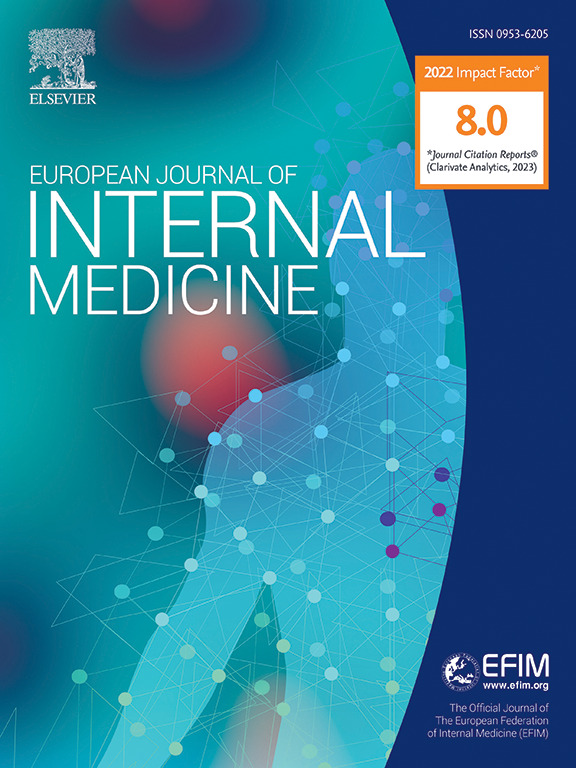Door-to-antibiotic time and mortality in patients with sepsis: Systematic review and meta-analysis
IF 5.9
2区 医学
Q1 MEDICINE, GENERAL & INTERNAL
引用次数: 0
Abstract
Objectives
To evaluate whether the timing of initial antibiotic administration in patients with sepsis in hospital affects mortality.
Methods
This systematic review and meta-analysis included studies from inception up to 19 May 2022. Interventional and observational studies including adult human patients with suspected or confirmed sepsis and reported time of antibiotic administration with mortality were included. Data were extracted by two independent reviewers. Summary estimates were calculated by using random-effects model. The primary outcome was mortality.
Results
We included 42 studies comprising 190,896 patients with sepsis. Pooled data showed that the OR for patient mortality who received antibiotics ≤1 hr was 0.83 (95 %CI: 0.67 to 1.04) when compared with patients who received antibiotics >1hr. Significant reductions in the risk of death in patients with earlier antibiotic administration were observed in patients ≤3 hrs versus >3 hrs (OR: 0.80, 95 %CI: 0.68 to 0.94) and ≤6 hrs vs 6 hrs (OR: 0.57, 95 %CI: 0.39 to 0.82).
Conclusions
Our findings show an improvement in mortality in sepsis patients with early administration of antibiotics at <3 and <6 hrs. Thus, these results suggest that antibiotics should be administered within 3 hrs of sepsis recognition or ED arrival regardless of the presence or absence of shock.
脓毒症患者从进门到获得抗生素的时间和死亡率:系统回顾和荟萃分析。
目的评估对住院败血症患者首次使用抗生素的时间是否会影响死亡率:本系统综述和荟萃分析纳入了自开始至 2022 年 5 月 19 日的研究。纳入的干预性和观察性研究包括疑似或确诊败血症的成人患者,并报告了使用抗生素的时间与死亡率的关系。数据由两名独立审稿人提取。采用随机效应模型计算汇总估计值。主要结果为死亡率:我们纳入了 42 项研究,包括 190,896 名败血症患者。汇总数据显示,与接受抗生素治疗时间大于 1 小时的患者相比,接受抗生素治疗时间小于 1 小时的患者死亡率的 OR 值为 0.83(95 %CI:0.67 至 1.04)。在≤3小时与>3小时(OR:0.80,95 %CI:0.68-0.94)和≤6小时与6小时(OR:0.57,95 %CI:0.39-0.82)的患者中,观察到较早使用抗生素的患者死亡风险显著降低:我们的研究结果表明,脓毒症患者在脓毒症发生时尽早使用抗生素可降低死亡率。
本文章由计算机程序翻译,如有差异,请以英文原文为准。
求助全文
约1分钟内获得全文
求助全文
来源期刊
CiteScore
9.60
自引率
6.20%
发文量
364
审稿时长
20 days
期刊介绍:
The European Journal of Internal Medicine serves as the official journal of the European Federation of Internal Medicine and is the primary scientific reference for European academic and non-academic internists. It is dedicated to advancing science and practice in internal medicine across Europe. The journal publishes original articles, editorials, reviews, internal medicine flashcards, and other relevant information in the field. Both translational medicine and clinical studies are emphasized. EJIM aspires to be a leading platform for excellent clinical studies, with a focus on enhancing the quality of healthcare in European hospitals.

 求助内容:
求助内容: 应助结果提醒方式:
应助结果提醒方式:


